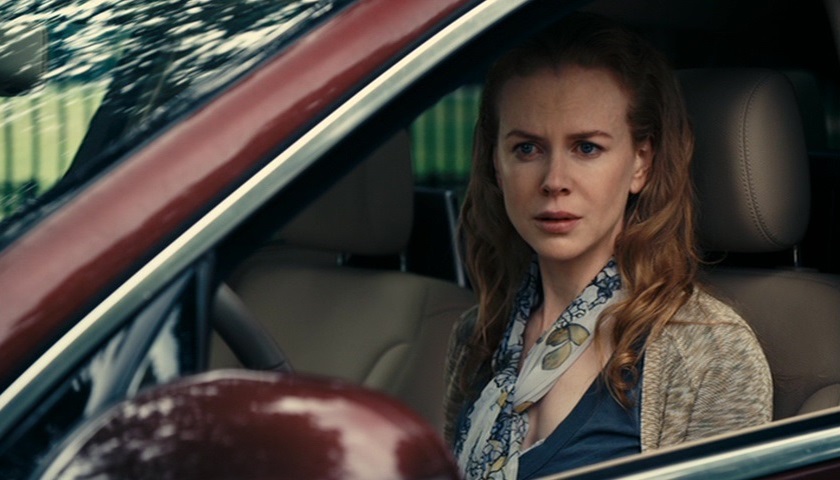

The Winner
Natalie Portman,
Black Swan
The Standout
Michelle Williams,
Blue Valentine
The Competition
Annette Bening,
The Kids Are All Right
Nicole Kidman,
Rabbit Hole
Jennifer Lawrence,
Winter's Bone
Credible Threat
Lesley Manville,
Another Year
Interesting Outlier
Kim Hye-ja,
Mother
World Traveler
Yahima Torres,
Black Venus
|
The Competition: Nicole Kidman, Rabbit Hole ★ ★ ★ ★ ★
Nonetheless, there is plenty to recommend this performance, especially in moments when Becca is alone, sorting through feelings more complicated than fury or sorrow (which are complicated enough). Kidman's face is less minutely expressive before Mitchell's camera than for Jane Campion's or Jonathan Glazer's, but she manages to convey Becca's inchoate curiosity about the teenage boy who accidentally ran over her dead son, without offering "inchoate" as its own gauzy affect. Her visible nerves while pursuing Jason around town, almost convulsing upon their first encounter in a library, contrast interestingly with the near-serenity Kidman brings to their furtive but platonic meetings on a park bench. There, the characters sit with their disparate but shared despair over young Danny's death, without wanting to get too much into it. Much of Rabbit Hole isolates Kidman in silent friezes, her mind sometimes visibly restless, at others entirely shut down while nurses a coffee or reads a book; it's hard for her to do much with such scenes, especially since Mitchell seems unclear how to shoot them. But longer shots and group interactions release more nuance in her body and voice. Witness her panicked, darting gazes and clumsy brandishing of a homemade comic book Jason has awkwardly gifted in front of her uncomprehending husband and sister. Another big scene entails Becca's indignant chastising of her mother, who keeps comparing her adult son's death, after years of addiction, to what Becca considers the more senseless loss of her own, more "innocent" toddler. Kidman might have played this dressing-down more nimbly, with more shaded and realistic variations of rhythm and volume—less, that is, like a predetermined aria within a script, and more like a series of cruel, extemporaneous reproaches, even if she's been rehearsing some of them in her head for a while. Still, I appreciate how she holds back from apoplexy, which spectators often want from a tirade. A late-night marital spat between Kidman and Eckhart strays further into that territory, to the advantage of neither performance. Typically, though, her Becca is intriguingly restrained, remaining an enigma for her on- and off-screen audiences, not because she's a Mysterious Person or because grief is unfathomable but because, alongside its paralyzing sorrows, mourning has made Becca curious. She wonders what death is, where her child is, where she is. It's unclear to whom she can address these thoughts, who will respect her rights to have them. Bitter, barbed, but bookishly inquisitive, she's figuring it all out. |
| Permalink | The Ballot | Best Actress | 2010 | Home | Blog |
